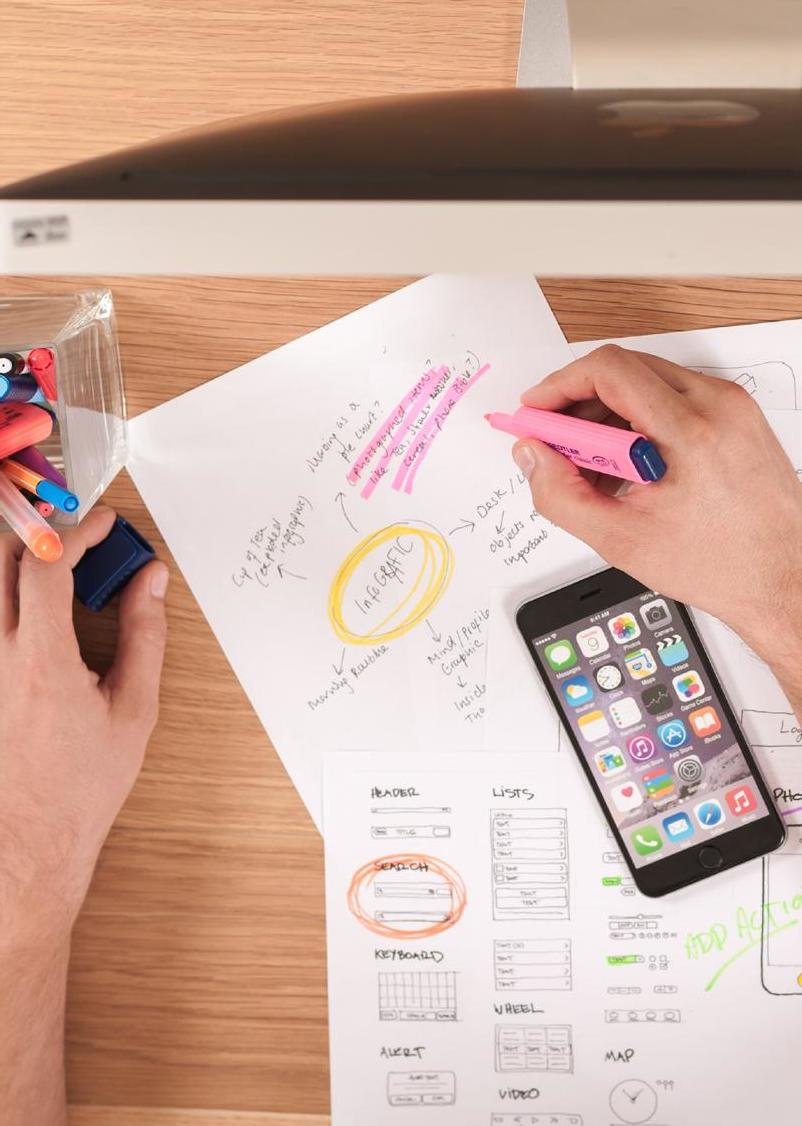
4 minute read
Don’t let your brain fool you - Wiktoria
Don’t let your brain fool you
Information is power. You might have heard that before. No matter if it’s true or not, we can easily observe how big influence one information might have.
Advertisement
The situation the whole world is facing nowadays is a great example of the impact of information. Fear, denial,or information overload are only few of the main symptoms we can observe and experience by ourselves. We are receivers of anhuge amount of information every day – by news we read, by podcasts we listen to, by videos or pictures we watch orthrough various accounts, people and products we follow on social media. These are all information platforms because everything we perceive carries some information behind. Sometimes we forget about it,we automatically share it with others and unconsciously create some opinions, which are very often based on news we liked. That’s why information more often becomes a tool of manipulation, because it easily influences our perception and opinion. It’s often used during campaigns, while talking about social issues, politics, science, life approaches etc. While being overwhelmed with receiving information, we naively believe that everything we read, watch, listen to is true and even if it’s not, then it doesn’t affect our lives. It’s not so easy though. But then, the question shows up - why don’t we pay more attention to the quality of information? The answer can be pretty easy and in fact it can be found in the most famous human achievement – ability to think. With all development we face, our skills also need to be developed, because much of our thinking, left to itself, is biased, distorted, partial, uninformed or down-right prejudiced. We are victims of many traps of our own thinking. Then we need to extend our critical thinking. It might be well known phrase but let me bring it back here again. Critical thinking is the ability to think clearly and rationally. It’s understanding the logical connections between ideas, actively conceptualizing, analysing and evaluating information gathered and generated by observation, experience, reflectionand reasoning. In fact, it is also asking ourselves higher ordered questions.
How can I do it and are there any likely positive advantages? I don’t want to leave popular phrase with one more definition, while we can all work on our conscious thinking with a little help of some tools. In order to start think critically, it’s good to think about why it’s important. Do I really want it? It also matters when we observe what are the causes of thinking that “I’m always right” – what are
the causes that the other perspective is wrong and doesn’t matter. I think the answers are pretty obvious and we can observe the effects around the world with an absolutely irrational actions taken by people we might love or hate. Another thing is that we all make some decisions and critical thinking is something which helps us to make those decisions more consciously and at the end of a day to be more satisfied. It brings peace and calm back. It’s because while we learn how to ask proper and adequate questions, we can easily discuss, make some choices, create opinions and what more develop ourselves.


The biggest step into critical thinking is to start questioning yourself. Why do I think like that. Who told me that. What sources where brought to confirm that thesis. Is it fact or opinion? What kind of emotions does this information bring? It doesn’t matter if it’s something you read or listen to – start to ask questions. When you think about someglobal issues, challenge yourself with those questions – while reading about global warming, poverty, war, religion, politics. Another tool is a model used by intercultural education trainers, while talking about mutual understanding and broaden perspectives. It’s called the D.I.V.E model.
D – describe I – interpret V – verify E – evaluate
It’sa short and easy tool to perceive some information. While we observe something, it’s very easy to stop on our emotions. And it’s normal. When we see or experience something, our brain sends some signals and we automatically feel some emotions, based on what we perceive. Emotions are important, because in many cases they are important signals, but they can also be misleading. That is why it’s a key to go forward and name it, because when we describe something it often happens that it brings much more different feelings than before. Then we can start to interpret. Why is it important? It’s because we can confront our observation with deeper insight based on our knowledge and experience. Next, it brings us to verification which is absolutely crucial, because we can check with different sources what we’ve already observed and interpreted.
Then we can decide if we agree or disagree with that – whether we like it or not. This easy method helps to understand our world better and decrease our own biases by digging deeper, by stepping by, reflecting, and understanding another perspective. I would like to leave you with some other digital tools, which can help you with verifying fake information and then increasing your critical thinking.
Images.google.pl - analyses photos published on different websites and shows whether they’ve been already published or not Extended google search – helps to find more detailed information Web.achieve.org - helps to find any changes on the existing websites from the moment they’ve been created
These are few examples for the beginning. Let’s keep in mind that our opinion is based only on our perception and perspective. We live in amazingly diverse world and the beauty of diversity always brings new perspectives. Don’t let you brain fool you.
Wiktoria Moritz Design - Kirsi Suomi
Sources: https://www.skillsyouneed.com/learn/criticalthinking.html https://www.criticalthinking.org/pages/defining-criticalthinking/766 Encourage critical thinking with 3 questions | Brian Oshiro | TEDxXiguan










